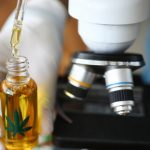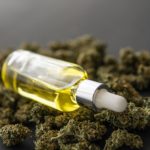How CBD Imparts Its Effects
January 31, 2020

CBD Products
The newest trend in health and wellness care supplements is CBD. It is also known as cannabidiol and the legally available CBD products such as oil are derived from the hemp plant. It is not psychotropic because of the low levels of THC. The rising popularity of these products is due to its many purported therapeutic and medical benefits. Researches have shown that CBD has more than 65 target points across the body. It uses multiple molecular pathways to achieve its effects, controls many ion channels and non-cannabinoid receptors. Listed below are some of the ways in which CBD imparts its effects.
Effect on Serotonin Receptors
A very high concentration of CBD activates a specific serotonin receptor 5-HT1A inducing anti-anxiety effect. This receptor belongs to the family 5-HT receptors that are activated by serotonin. Therefore CBD affects the response of these receptors to serotonin and they are responsible for functions such as appetite, sleep, pain perception, nausea, vomiting and addiction to substances. CBDA or Cannabidiolic acid i.e, the raw unheated form of CBD has a higher affinity for 5-HT1A receptors than Cannabidiol.
Effect on Vanilloid Receptors
Their medical term is TRPV receptors and are responsible for regulating body temperature, pain perception and inflammation. CBD attaches to this receptor and acts as an agonist that activates TRPV. As a result, it produces therapeutic effects like anti-inflammation and pain relief. So, CBD oil for back pain as an alternative for regular ointments is gaining popularity.
Effect on Orphan Receptors
This receptor is also known as GPR55 and is responsible for regulating bone density and blood pressure. CBD attaches to it and blocks or deactivates it. This receptor promotes osteoclasts formation that is responsible for bone reabsorption. A highly active GPR55 signalling results in osteoporosis. Hence, CBD is useful in strengthening bone in older people. Activation of this receptor causes cancer cell proliferation.
CBD Role as Allosteric Modulator
CBD can change the way how a receptor transmits signals either by enhancing or inhibiting it. It interacts with GABA-A receptor and enhances its natural calming effect.
These are some of the biological pathways in which CBD imparts its effects. More researches are required to know how CBD functions at a molecular level. This will help to find more medical uses of CBD.






